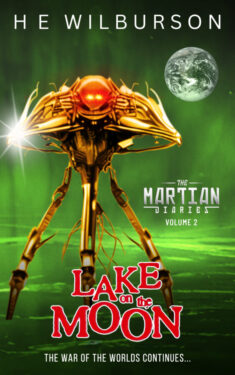by
Surfside City, New Jersey. 1966. Cub reporter Harman Bass is cutting his teeth in the fast world of local journalism and getting out-scooped by the competition. Facetious, cocky, and always quoting Nietzsche, Harman isn’t making any friends both in and out of the newsroom.
All that changes when the daughter of a prominent family is found dead on the beach, handing Harman the juiciest news story of the year. But she wasn’t any old beauty pageant queen; she was his high school girlfriend. Harman’s dogged reporting into the young woman’s death reveals pushback from the authorities and pulls the newshound into the resort’s darkest corners.
After one of his sources is murdered, the routine story becomes dangerous and personal. Something watches Harman from the shadows, something ancient and hungry, worshipped by powerful men who kill to keep their secrets. Harman’s job and life are soon threatened, and the once brash reporter must battle his boss, rival journalists, and his own sanity before filing what could be his last story.
THE OCEAN HUGS HARD is a mystery with the salty whiff of the ocean, a tinge of nostalgia, and a dollop of mind-shattering eldritch horror.
Genres:
Tropes: Conspiracy, Dark Enemy, Fallen Hero, I Am Your Father
Tropes: Conspiracy, Dark Enemy, Fallen Hero, I Am Your Father
Harman Bass sprinted along the boardwalk towards the dead body on Sunburn Beach. Racing past the Ferris wheel that loomed overhead like a steel colossus, he searched his pockets and made sure he had his gear.
Press pass? Check.
Notebook? Check.
Ballpoint pen? Check.
Binoculars? Check.
Cub reporters had to get it right or they’d wind up exiled to the features desk, a place colder and more desolate than Siberia. News reporting was all about projecting competence, and Harman risked blowing it when the tip of one of his Florsheims caught the edge of a partly warped plank. He planted face-first in front of the reporters who cackled at his misfortune.
READ MOREHis Ray-Ban Wayfarers skittered across the boardwalk, along with his pen, press pass, and notebook. Thankfully, he’d managed to hold onto his binoculars. He rubbed the scrape on his chin and gathered his belongings before limping to the edge of the ‘walk. Harman inspected his gear and found that his pride was the only thing that had been damaged. He brushed his sandy blonde hair from his eyes, adjusted the trilby on his head, and kept walking.
That summer was a hot and humid monster lousy with greenhead horse flies. Greenhead bites were like the Devil himself pinching you.
Harman hated the greenheads more than he hated the beach. He peered through his binoculars at the body sprawled on a colorful towel on the sand. The lifeless bikini-clad woman only made him detest the beach even more.
The victim appeared to be in her early twenties. Her blonde hair spilled over her face, hiding it from everyone. Were it not for the police gathering on the beach around her, she could have just been sunbathing.
But something told Harman this wasn’t a pleasant seaside snooze.
A crowd of curious onlookers on the boardwalk gawked at the body, leaning over the railing past the dunes, where the beach sloped into the darkness of the ocean. A caterwauling gull cut through the sound of distant waves crashing against the rocks. Police officers shambled along the cordon line and made sure that the public didn’t get too close. A detective knelt over the woman’s body and plucked her white, plastic sunglasses off her face, revealing dead eyes, fixated on the sky. He handed the sunglasses to another officer.
Harman scrutinized their faces and analyzed the detectives’ subtle body language. The way they moved reflected their doubts—one scratched his head while another jotted a few notes. He turned his binoculars to the pad of paper in the second officer’s hand, but couldn’t make out the chicken scratch handwriting.
Murder was unusual in Surfside City. The resort was “America’s Seashore Playground,” according to the large signs that fronted the ‘walk. It was a slogan crafted decades ago to entice tourists to the barrier island. And it worked. Surfside City was ice cream and amusement rides, surf and sun. The kind of upstanding place where people didn’t lock their doors at night and neighbors helped each other out. Murder only happened far away in big cities, where switchblade-slinging muggers robbed unsuspecting commuters on subways.
Certainly not in Surfside City, “America’s Seashore Playground.”
This woman, whoever she was, was an anomaly, and anomalies meant front page news.
Harman swatted away a greenhead fly, pushed his way through the throng to a different part of the boardwalk’s railing, and pressed the binoculars to his eyes. The wind tossed her hair around and he almost caught a glimpse of the dead woman’s face.
“It’s a cruel thing, isn’t it, Bass?” Harman turned at the sound of Chuck Duffy’s voice.
Duffy looked the part of a veteran reporter in his faded fedora, wrinkled suit, and striped silk necktie. He peered past Harman, pulled out his notebook, and scribbled something furiously in shorthand. Duffy worked for a rival newspaper, the Mainland Times, a popular daily that was printed seven miles off the island on the mainland.
As far as local journalists went, Duffy was a legend. Lean, with a square jaw, tortoiseshell glasses, and bags under his eyes from a lack of sleep, Duffy was the consummate dogged reporter. A newspaperman for thirty-five years, mostly for dailies in Philadelphia, Duffy had plied his trade with the Mainland Times since ‘61.
For cub reporters like Harman, knowing a guy like Duffy was a valuable resource. Duffy understood the nuances of business and had a keen instinct for tough-as-nails, beat-the-pavement reporting. He had reported more than his fair share of murders in Philadelphia, so the sight of a dead body in public didn’t seem to bother him as much as it did some of the officers down on the sand.
“Don’t fret, kid.” Duffy didn’t look up from his notepad. Between Duffy’s onion breath and the sickly smell of brine on the ocean air, Harman’s stomach lurched. “You’ll see plenty of this stuff. It’s all part of life in the trenches.”
“Writing hard truths isn’t for everyone,” Harman replied.
“Truth?” Duffy scoffed. “We’re not about truth, kid. Truth is heady, philosophical mumbo-jumbo. We’re about facts. Facts are verifiable and proven.”
A man in a tweed suit and bad combover pushed his way through the crowd and crouched under the police line. He walked over to the detectives, shook their hands, and squatted beside the woman.
“Good ol’ Harvey Falcone. Dragging his sweaty ass out from behind his desk to pronounce the poor girl dead,” Duffy noted, as if he was narrating for curious onlookers.
“Falcone?” Harman muttered.
“County medical examiner. Hopefully, he’s not too potted and can do his job. The guy likes to imbibe now and then,” Duffy muttered.
Falcone put on gloves and moved the young woman’s head to the side. Harman peered through his binoculars and saw thick red lines on the woman’s neck. Falcone shifted his body and blocked Harman’s view. He turned towards one of the officers, said something, and then nodded sagely in response to whatever the policeman said.
A husky man in a rumpled fedora and rolled shirtsleeves made his way over and eyed the body. Thick perspiration stains soaked his shirt beneath the thin necktie and under the arms. The man dabbed at his sweaty forehead with a handkerchief. Police Detective Gerald Brewer, a man who was more strip of worn leather than man, conferred with Falcone. The two stood on the beach and talked for several minutes.
“This should be good,” Harman muttered as the young man with brown skin, sharp eyes, and a Pentax 35-millimeter camera approached him. “Glad you could make it,” Harman said to Lyle, his photographer.
The young man replied, “Hey, Harman. Sorry, I had to grab more film.” He looked over towards the police officers. “What do we have today?”
Duffy eyed Lyle. “Who’s your friend here?” he asked.
“Chuck, this is Lyle Morris, our new photographer.”
Lyle held his hand out to shake Duffy’s, but the old reporter simply looked at Lyle and forced a smile. After a few awkward seconds, Lyle dropped his hand and proceeded to photograph the crime scene.
A lanky police officer with a pug nose and beady rodent eyes walked past Lyle and Harman. The officer’s hand rested on his holstered gun when he glared at Lyle.
“You ain’t gonna publish those photos, are ya?” the cop asked Lyle.
“I just take them, sir. I have no say if they get in the paper,” Lyle replied, peering through the camera lens.
“No, I’m saying ya ain’t gonna publish them.” The cop’s fingers tapped the grip of his gun. “Get me, boy?”
“Officer Pendrick!” Harman wedged himself between his photographer and the policeman. “What a pleasant surprise. Is feeding time at the zoo over?”
Pendrick’s brow wrinkled. “Watch it, Bass. This don’t concern ya.”
“Since Mr. Morris works for the Beacon, it does concern me. He’s my photographer,” Harman said.
“There ain’t no story here, Bass. Beat it,” Pendrick jerked his thumb towards the other end of the ‘walk.
“Surfside City’s finest converging on the beach and not a doughnut in sight?”
“Don’t be flip with me, Bass.” Pendrick edged away from Harman. “We’re just doing our job.”
“Aren’t we all? What’s happening down there?”
“Looks like a girl fell asleep and didn’t wake up.”
“I wouldn’t wake up either if there was foul play.”
Pendrick smirked. “I can arrange that, Bass.”
Harman stiffened. There it was—the violent threat. “Nietzsche wrote,
‘Whoever fights monsters should see to it that in the process he does not become a monster.’ Do you agree, officer?”
Lyle rolled his eyes. He had heard Harman fish out Nietzsche quotes for less.
“What are ya talking about? Ya drunk?” Pendrick thrust his head closer to Harman and sniffed for any tell-tale signs of whiskey.
“All I’m saying, Officer Pendrick, is that not every solution requires violence,” Harman said.
“Don’t make me test your theory, Bass,” Pendrick grumbled as he walked off.
“You didn’t have to do that, Harman.” Lyle snapped a few more pictures and then put his camera into the canvas bag slung over his shoulder. “You don’t have to defend me like that. I can handle myself.”
Harman exhaled. “Sure, Lyle. I know. It’s just that I can’t stand the way that the fuzz in this town talks to people. They’re a bunch of bullies.”
“I noticed,” Lyle said. “Believe me, I always notice.”
When Lyle had applied for a job at the Mainland Times, the paper had told him they wouldn’t be hiring him as a photographer, but had offered him a janitorial position—out of the kindness of their hearts. Lyle had moved on to follow his dreams and wound up at the Surfside City Beacon.
Lyle was a genius in the darkroom, developing photos with such clarity that even the Beacon’s crusty editor had complimented Lyle’s work.
It didn’t matter how well-cropped or focused the photographs were if there was no story to accompany them, and Harman didn’t have anything yet. He scrutinized the faces of the people milling around the boardwalk. The reporters in Surfside City had the attention spans of gnats, flitting from one thing to the next without really observing them. Harman was different. He was built differently. He had done his best to hone his perception and observed even the tiniest details that other reporters tended to miss. If it wasn’t for his penchant for typing, Harman could have become a detective.
Falcone finally got to his feet and walked away from the corpse. Harman peered through his binoculars again to see if he could get a better look.
He froze.
Harman knew her. He hadn’t seen her in years, but she was seared into his memory—there was no doubt.
“Didi.” The name slipped from Harmon’s lips in a sad whisper.
“What’s that?” Lyle asked, snapping photos despite Pendrick’s threats.
“Didi Wilton,” Harmon said, binoculars still pressed against his eyes. “That’s her name.”







